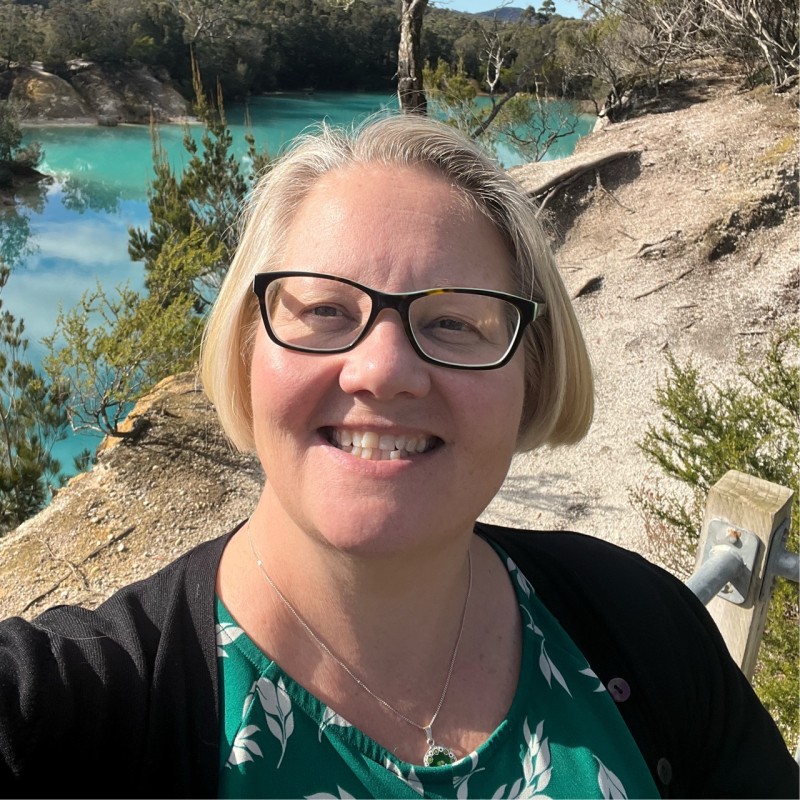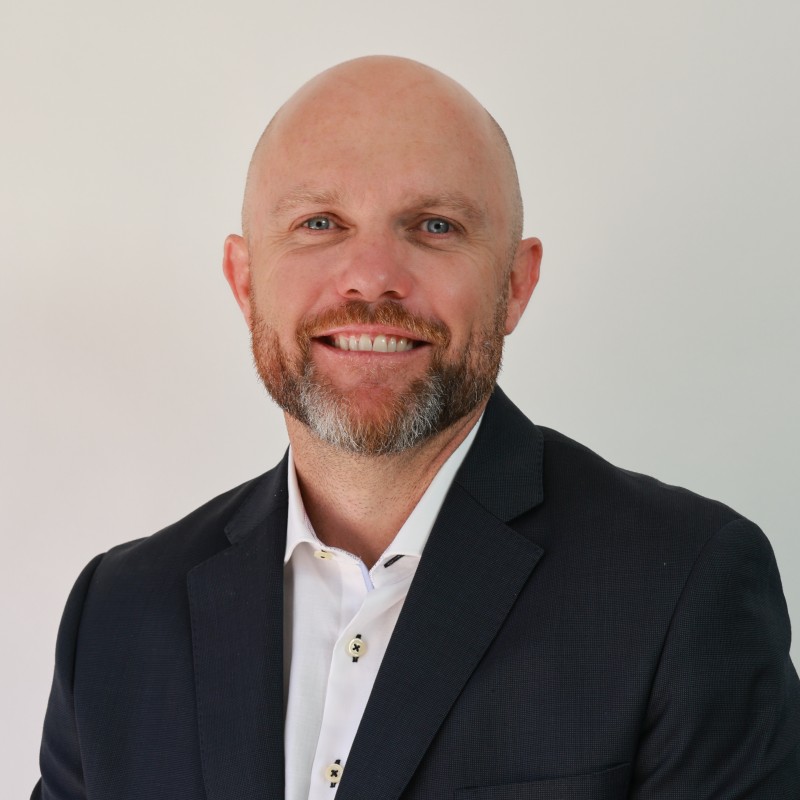“We think there’s a huge opportunity and I think there’s a real opportunity of adopting technology to make some of those potential technology changes that will help bookkeepers and practices in the future”.
“We’re already seeing from surveys that accountants are recognising how much technology can potentially improve the effectiveness and efficiencies of their everyday lives in relation to the challenges that they face. That, for me, is a huge opportunity”.
– Sabby Gill, Dext.
Today I’m speaking with Sabby Gill, CEO of Dext.
Sabby Gill was appointed as Chief Executive at Dext in October 2022. He has more than 35 years of experience in the technology sector, spanning sales, operations, development, support and customer service. He has spent his career supporting businesses of all sizes with technology that looks to unlock their potential—both at home and in international markets, including working in the Netherlands and Dubai. Prior to joining Dext, Sabby was CEO of Thomas International, which is a leading talent assessment and psychometric provider. Prior to that Sabby was UK & Ireland Managing Director of Sage, prior to that I held senior executive leadership roles at Epicor, IGT, HP, CA Technologies, Oracle, PeopleSoft and Digital Equipment Corporation (DEC).
In this episode I ask Sabby Gill:
- Joining Dext Empire two months ago.
- Community and what the APAC region expects from DEXT over the next two years and beyond?
- The strategic focus of Partnerships within APAC.
- The future of E-invoicing in Australia.
- Undergoing a brand change/rename that Dext has gone through.
- Advice for facing a tough economic environment, with inflation, and a looming global recession.
Got a packed schedule? Now you can get your CPE credits while you’re on the go! Tune in to my podcast on Earmark and earn NASBA-approved CPE or IRS-approved CE—just by listening. It’s that simple. Head to my Earmark CPE channel, register and launch the course.
Don’t miss the details at the end of this blog to learn more about Earmark CPE. Now, let’s dive into this episode! 🎧
Scroll down for a full transcript
Is this your first visit to Australia?
Sabby: No, Heather, this has been a superb journey where I’ve had the opportunity to come to … All of those roles that you mentioned previously has allowed me to come and enjoy your beautiful country, and it’s great to be back.
Heather: Yeah, it is a beautiful country, so welcome. You joined Dext two months ago.
What attracted you to joining the Dext empire?
Sabby: Yeah, look, you mentioned earlier in the introduction, I’m very familiar with the space, having worked at Sage for two years as the managing director for the UK and Ireland business. And Sage is only one of two companies on the entire FTSE 100. Very prominent, been around 41 years, over 600,000 clients in the UK alone. A very large business of which Dext was a strong partner. And so I was very familiar with the space, very familiar with the accounting, the accounting practices, bookkeepers environment. I ran the accounting and the accountants division for Sage. Very familiar with that. When I had the opportunity to come and join Dext, having known the space and understanding the product set that we had, I think one of the opportunities is when you look at the total addressable market, just on exactly the value, the effectiveness, efficiency that a product like Dext can bring to a practice or a bookkeeper.
I look at that and say how under-penetrated it is, right? If you look at, I think one of the surveys that we did, which we commissioned actually here in Australia, around 500 accountants and bookkeepers, and you ask them about what top three challenges that they face in their day to day work, 51% listed personal stress or anxiety from client engagements or other work related factors as one of their top three challenges. They also mentioned implementing new technologies including change management and spending too much time on tasks that could be handled by technology. We’re already seeing from surveys that accountants are recognising how much technology can potentially improve the effectiveness, efficiencies of their everyday lives in relation to the challenges that they face. And for me that’s a huge opportunity.
And speaking to some of the team and some of the accountants and practices here in Sydney during my recent visit, and one of the things that we were talking about was the importance of skills shortage and skills specifically around accountancy and accounting practices, and the number of qualified accountants that are coming through the profession is greatly being reduced. Not as many people are coming through and there’s potentially a skill shortage. You think about that and you say, “Well, okay, how do we at least ensure that those people that are coming through can be efficient and effective in the job that they do and take away some of the other processes and what can we automate and how do you use technology like artificial intelligence, machine learning, automation, extraction?” And that’s very much what we do at Dext. We think there’s a huge opportunity and I think there’s a real opportunity of adopting technology to make some of those potential technology changes that will help bookkeepers and practices in the future.
Heather: Absolutely. I think the challenges of the last two years have probably seen small businesses who are going to get on online cloud accounting software get on it. I don’t see there being a great growth in that area in particular. And that’s just based on my own thoughts, not on any empirical data, but I see the next frontier as bringing in these solutions such as Dext, the optical character recognition and bringing in the functionalities that Dext can do.
What do you hope to achieve with Dext and the various products it offers over the next say two years?
Sabby: Yeah, look, it’s really about penetration, right? We have a big client base, we have some great relationships and partnerships globally. One reason why I’m using the opportunity to be here is when you look at the number of extractions that we do and the number of integrations and interfaces, our largest integrated partner is actually Xero, right? Which is an opportunity not only here in Australia, which has one of the largest footprints. It’s also available on a global basis. Pretty much all the major focus countries, regions, and territories that Xero are looking at is also somewhere where we already operate.
For me it’s a case of what can we learn about the success that we’ve had in this region and how do I take that success and be able to move it to other territories around the world so that we can potentially benefit from the relationship that we already have with people like Xero into North America, into the UK, into other territories where we’re accelerating our growth, we’re putting a huge focus, and how can we help each other? Doing a review with the team this morning, when you look at the App Store and you look at the presence that Dext has, we are regarded as the number one with the most number of reviews at 4.7, over 900 reviews, individuals and people. And we are one of the strongest partners. And I think again, it’s just how do we leverage that going forward?
Heather: Yeah, absolutely. Absolutely. Let’s talk about community. You’ve worked alongside the accounting and bookkeeping community for many years, and in your introductory letter to the community, you said, “I’m obsessed with customer and employee engagement and I’m excited to meet many of the partners and businesses that Dext support.” For me personally, I have used Receipt Bank since almost day dot and have been a long term user, which is now Dext, but if I jump into any of the forums and mention Dext there’s a number of unhappy campers who will jump on posts.

What can the APAC region expect from Dext over the next two years and beyond? And what is your strategic focus of partnership within Dext and within the APAC region?
Sabby: Yeah, look, there’s a number. When we think about the key focus areas for us at the moment from a product perspective, there’s the future of e-invoicing in Australia, which we think is a huge opportunity. And we actually have a product that’s coming out, an early version of the product, which we’ll then make available to a number of partners and practices in January, right? In the January/February timeframe. There’s things like payroll checks, which I think will also be an important part from a prepare perspective, ABN checking that we also need to be able to make sure that for small, especially for small businesses and for practices to be able to make sure that any organisations and suppliers they’re dealing with are legitimate organisations, because cybersecurity and all of those things play a major part. It’s that control piece. There’s also at least the window you’ve sort of given me over a two year period, there’s also other legislative changes and compliance changes that are happening in other jurisdictions that could also help us here in Australia.
Having the ability, when we think about in the UK, there’s making tax digital in France, they are doing in 2024 e-invoicing and invoice creation. All of those legislation changes and what’s happening there will potentially have an impact on whatever solutions are coming out in other territories and regions. When you look at the closeness between the UK and Australia, which a lot of organisations do, whether you call it VAT, GST, multicurrency, you think about language, you think about the Anglo-Saxon accounting models, the accounting principles are very much the same. And we have that ability with being executed in the UK and having a very large prominent presence there that a lot of that can be leveraged here in the local market. That’s really what we’re going to be focusing on next couple of years is those product feature functions that I mentioned, e-invoicing, and then really leverage as much as we can all of the compliance and regulatory that’s happening in other territories and bringing that over here.
Heather: Yeah, absolutely. And it’s interesting because the Commonwealth countries all seem to operate in a very similar way, but I think that a solution like Dext and someone in your position, you have a great opportunity to see what the different regions and the different countries are doing and advise back and try and offer people the best option there. I see that you serve on a number of boards pushing digital adoption. I was really impressed by that. I try and serve in my area where I can to serve and provide advice like that. So you’ve recently become the chair of the Digital Leaders Advisory Board, a community of over 180,000 professionals working to eliminate the issues that hold back UK digital transformation.
What are you hoping to achieve in that role and how can UK people get involved? And have you got them all using Dext yet?
Sabby: Not yet, but it’s on my to-do list. But no, look, the great thing about Digital Leaders is this is a community of individuals rather than organisations. What can an individual person do on their own? Not much, but when they’ve got 180,000 people behind them who can provide advice, support, give them their experiences of how they’ve been through digital transformation and digital leadership in their particular organisation, people move around organisations. For us, there’s a lot of learning about mistakes. I’m a real true believer that have the courage to fail because what you learn from failure will benefit you greater than the successes that you’ve had. And having individuals and people that you have, a forum where you can post questions, have working groups, we on a fairly regular basis have forums that allow people on specific subjects.
Literally a week ago I was at the House of Lords where we were announcing the Net Zero 50 list, the top organisations, whether they were individuals initiatives or programmes or products which were helping around the decarbonisation strategy for 2050, for the UK. And again, it’s things like that that most people wouldn’t have associated with digital. However, these were digital technologies, initiatives and programmes that people were putting in place, which were there to try and speed up the ability for organisations to accelerate that decarbonisation strategy. For me, you would never be able to do that if you didn’t have an organisation that could really help you support you, put you on a list, put you on a platform, and give you that exposure where people can then make investments to help you along that journey.
Heather: Yeah, absolutely. And you learn from being around each other and learning from each other. And you’ve mentioned a few times, sorry to cut you off, you’ve mentioned a few times the net zero and the sustainability, and I know that adopting Receipt Bank was one of the first things that gave me a paperless office. And you can see my office behind me. It’s fun. There’s no paper happening in my office and it does my head in that a decade later, people are still struggling to adopt paperless office in terms of the sustainability, in terms of fires and flooding. If you can bring it all into the cloud, you are in a much better position for that.
What are your thoughts on businesses embracing sustainability and what are some small things that you are doing in that regard?
Sabby: We all know that there’s been a massive paradigm shift in relation to firstly adoption of technology. I think even here in Australia, the work that the tax authorities are doing and having actually a digital strategy in place to be able to accelerate and make tax online and almost getting a tax efficient structure in place is absolutely imperative, right? Because that does do everything that you’ve talked about. The quicker you can get organisations to process information and data and receipts and invoices is crucial to small business. And that’s really what we have to think about is when you think about small businesses, what’s the number one reason why businesses go fail? It’s because of insight into cash flow, right? They’ve got got invoices going out, they’ve got invoices coming in, they’ve got payments going out, they’ve got to pay people.
They don’t necessarily always have that insight into what’s going out, when it is coming in, do I need a bridge loan? Do I need to be able to have money in the bank? Do I need an overdraw facility? All of those different components. And the more you can automate that within a business, that automatically gets to the paperless office, it automatically gets to the ability for small businesses to actually stay alive. They allow people to be able to hire more people. It’s a massive ecosystem which automatically reduces the dependency that they have on government, that they have on departments. And that in itself means that the more people you keep in the workforce, the higher degree there is around sustainability of individuals, people, and all of the components that go into running a small business. For me, it’s about let’s make sure that we can keep businesses afloat, we can keep individuals and organisations in work. And that to me is a bigger element of sustainability for businesses than it would be if we just allowed businesses to fail.
Heather: Yeah, absolutely. And I attended the London Zero Con in July and through the challenging economic situation, and there was no Prime Minister in at the time I attended, and it was the hottest day on record and the trains weren’t working. I was in that room going, “The accountants and bookkeepers are going to save the economy. You’ve got the power, you’ve got the tools, you’re going to save it.” And that’s kind of aligning very much with what you are saying there. I have deep belief in the power of our accountants and bookkeeping community globally. And you are going to, I imagine, see this with your travels with Dext that given the tools, they’ll save us, they will save us.
Sabby: Correct, yep.
Heather: I’m very passionate about that.
Sabby: I’m joining the movement, Heather, don’t worry.
Heather: Good. Very good. Very good. Have you ever been involved in a company that’s undergone such a drastic brand change name that Dext has gone through? As you can tell, I’m interviewing you and I’m having a hard time even remembering Dext and I keep flipping back to Receipt Bank and I had to actually go onto the … I use it daily, but I had to go onto the website to find out what the current name is and it’s Dext Prepare, that is what the Receipt Bank is now called.

Have you been with a company that’s gone through such a drastic change that the community is still not upset about, but just struggling to keep up with?
Sabby: Yeah, no, look, to be honest, I would say it was when I was at Oracle, Oracle was made up of lots of acquisitions. They bought PeopleSoft, they bought Hyperion, I think they bought … I’ve even forgotten the name of the product. It’s another CRM product. They bought all these multiple products, started changing the name, and actually they went back to changing them. And when I think about what Dext has been through, yes, it was Receipt Bank and we called it Prepare. We bought another product called Xavier and called it Precision. We bought another product called Green Back and called it Commerce.
When we went through that rebranding exercise, I think the company needed that new identity. But I think in full transparency, we could have done a far better job of just making sure that transformation and that transition to the new name and ensuring that we had some element of continuity and we shared what the new branding meant and what the new products were, I think we could have done a far better job in that. And I think that we’ll be the first ones at Dext to show that. And I think there’s still some work to be done. That job is not done around our rebranding. I think we’ve got to continue educating individuals and people and make sure people remember what Receipt Bank was there for, what our values were, what our culture, to an extent.
The largest portion of our revenue still comes from that product and we’ve got to make sure that we have that continuation and people don’t forget that we were a Receipt Bank to an extent, right? In whatever transformation, whatever journey you tend to show people that the evolution that the business has been through. Our roots were Receipt Bank, right? And we shouldn’t sometimes forget where the roots were and those sort of things. We will continue on that journey. We will continue to educate. The change has been made now, so it’s not as if we’re ever going to go back to what we were, but I think it’s just a huge opportunity to just ensure that we stay focused, we look at what else we can do, and just make sure that everybody understands what Dext is and what it was, and then really talk about how do we take that forward rather than worry about historically all of the challenges that rebranding caused?
Heather: Yes, absolutely. And I think the thing is, many of the people still here love Michael, love Sophie, love Receipt Bank and its community and they’re embracing it for the value and the culture, et cetera.
Sabby: Yeah, and I had the opportunity literally within the first couple of weeks of joining, of actually spending time all time with Michael, going back and having that conversation with him and asking him about the history and everything, the journey that we’d been through and the journey that he’d been through. And it was just great to make sure that as a new CEO coming in, I need to understand the heritage of the organisation and the original founders and what were their thoughts and what were they thinking so that when I think about our future, that I don’t forget about that, right?
Heather: Yeah.
Sabby: Because that’s very much, we’ve got all individuals and people who’ve been with the organisation, whether through people like yourself who’ve used it since year dot, as well as our own employees. I met employee number one the other day when I was in Bulgaria, and it’s great that we still kept onto individuals like that and we shouldn’t forget the history. Because if you do, then I think personally that’s the wrong thing to do.
Heather: Yeah. And I think everyone recognises that you need different people to lead it. People have different skills and they’ll go off. It’s the story and the history and the legacy of there, and being technology, it’s important to remember that there are humans, humans paying mortgages behind these solutions. Thank you so much for joining me today, Sabby.
Is there anything else you’d like to share with our listeners and how can they get in touch with you?
Sabby: Yeah, look, by normal route, you can come through our website, you can come through LinkedIn. Heather’s got my details, so please reach out to her as well. No, the only thing I’d like to leave you with is just the importance of the community, the importance of the accountant and the bookkeeper community. That’s something for me that we as an organisation will never forget, right? Another reason why I’m here is we are restarting the partner advocacy events that we had. We’ll continue the sponsorship of all the key events, whether that’s ABE, Zero Con, Accountex, over the next year. We’re really focused on events with partners, right? First-class accounts, gyms, whatever the organisations are.
The next three months we’ve got road shows coming up, literally all over Australia. But the idea is that we want to get out to individuals, people, local communities, and just make sure they understand the importance that we put on individuals. We will never, ever take relationships for granted. And you mentioned earlier around the importance of at the end of the day, we’re a software company. We talk about IP, right? Our intellectual property. People always point intellectual property as being the software itself. To me, it’s not the software. The software is an outcome. It’s all the individuals, people, right? All the employees that I have, all the partners, the bookkeepers, the accountants, they’re the most important part.
And I will never apologise for the fact when I’ll turn around to customers and say, “Just so you know, you’re not the most important people in the equation. It’s actually every single employee and Dext employee.” Because I know if I provide an environment and a culture where they absolutely love to come into the office and enjoy what they do, that will be infectious to every single customer, partner, bookkeeper that exists out there. And then they will get that same experience. And for me, that’s the most important thing and just know that I’m committed to making sure that that happens.
Heather: Your IP is your relationships?
Sabby: Absolutely. Whether that’s employees or external. But yes, you nailed it.
Heather: Thank you so much, Sabby, for taking the time to speak with me and the Cloud Stories podcast audience. Really appreciate it.
Sabby: Great. Thanks Heather. Really enjoyed it. Thank you very much.
Earmark CPE is registered with the National Association of State Boards of Accountancy (NASBA) as a sponsor of continuing professional education on the National Registry of CPE Sponsors. State boards of accountancy have final authority on the acceptance of individual courses for CPE credit. Complaints regarding registered sponsors may be submitted to the National Registry of CPE Sponsors through its website: www.NASBARegistry.org.










